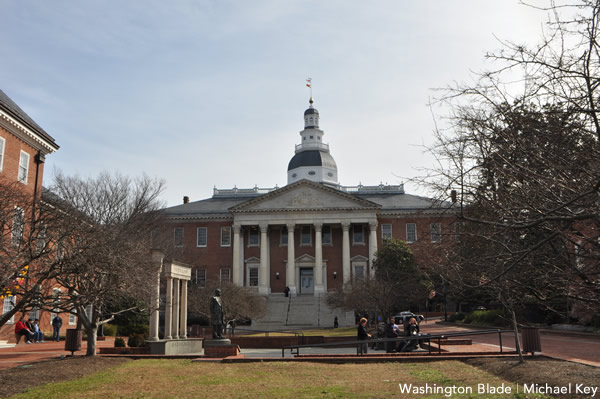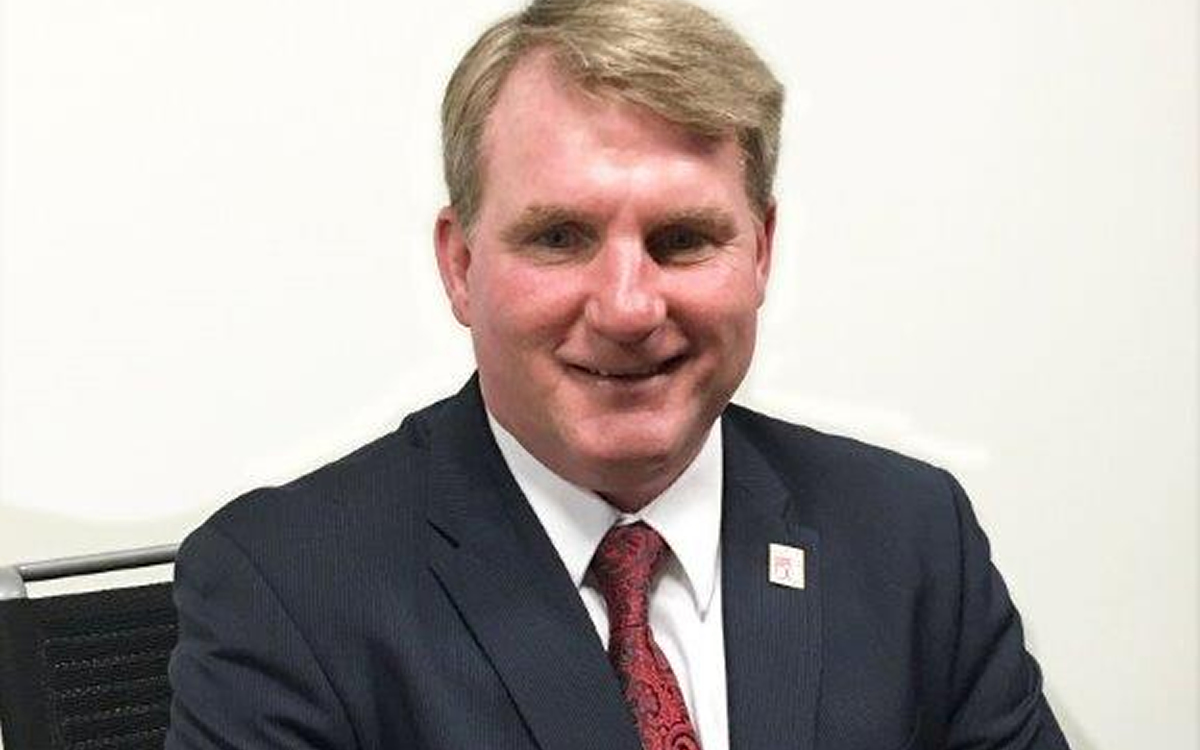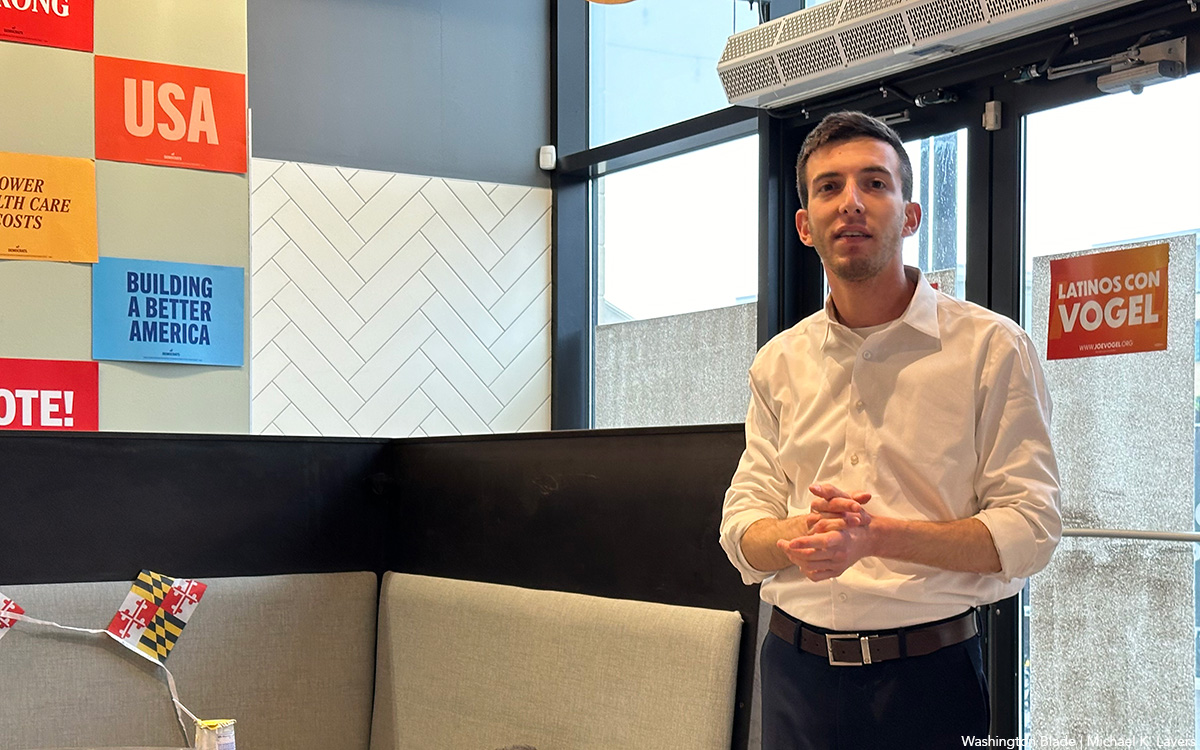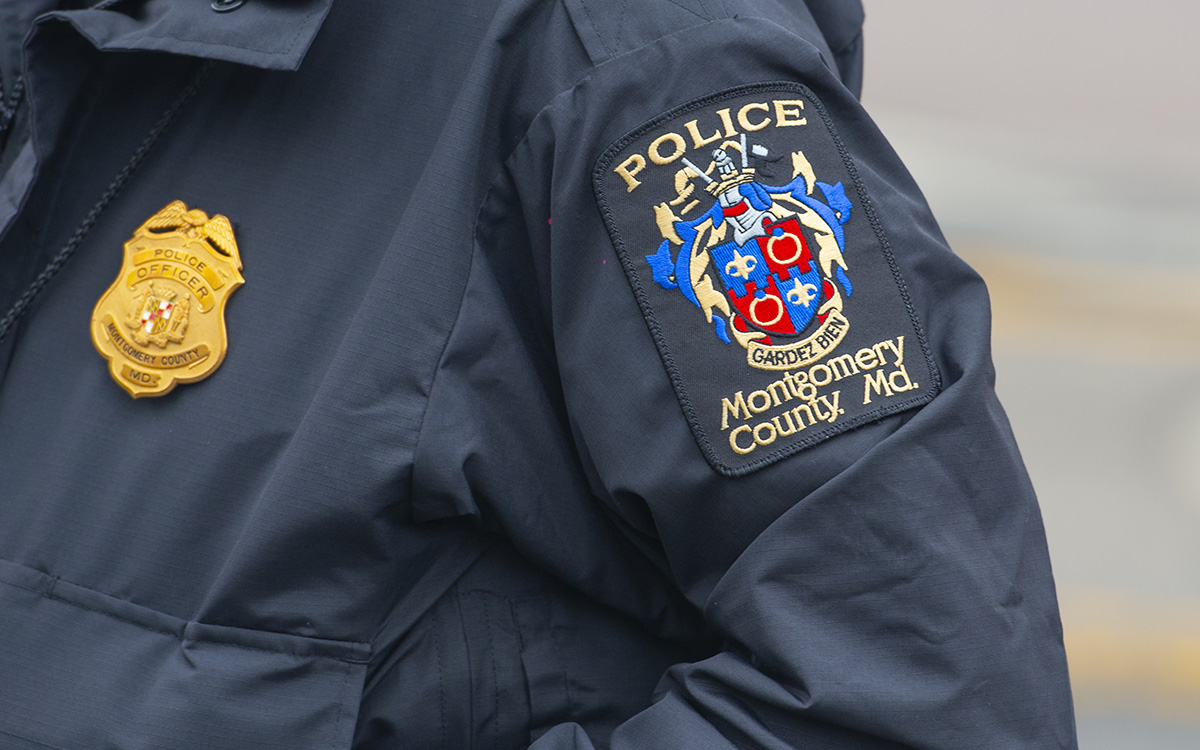Local
Md. sodomy law used in bookstore arrests of gay men still on books
Only one of two separate sodomy laws repealed in 2020

In a little-noticed development, the Maryland General Assembly agreed to requests by Republican lawmakers to delete one of the state’s two separate sodomy laws from a sodomy law repeal bill that it approved in March of 2020, leading most LGBTQ activists into incorrectly believing the full sodomy law had been repealed.
According to Maryland House of Delegates member David Moon (D-Montgomery County), who introduced the repeal bill in the state House, which approved the bill on Feb. 20, 2020, the Democratic-controlled Senate Judicial Proceedings Committee voted unanimously to pass an amendment that deleted from the bill a provision calling for the repeal of Maryland’s Criminal Code Section 3-322, which is known as the Unnatural or Perverted Sexual Practice Act.
The act criminalizes oral sex in all possible circumstances, including between consenting adults.
It states, “A person may not: take the sexual organ of another or of an animal in the person’s mouth; place the person’s sexual organ in the mouth of another or of an animal; or commit another unnatural or perverted sexual practice with another or with an animal.”
The offense of violating the act is listed as a misdemeanor but includes a penalty of up to 10 years in prison or a fine not exceeding $1,000 or both upon conviction of the offense.
During its deliberations in March 2020, the Senate Judicial Proceedings Committee, while deleting the Unnatural or Perverted Sexual Practice Act from the repeal bill, left in place the provision in the bill that called for repealing Maryland’s criminal Code Section 3-321, which criminalizes “sodomy” between consenting adults as a felony with a penalty of up to 10 years in prison upon conviction.
Supporters of the original repeal bill say the two statutes each criminalize same-sex sexual relations between consenting adults and the repeal of one of them and not the other leaves on the books a statute that stigmatizes LGBTQ people even if the law is not enforced.
Supporters of the original bill also pointed out that separate, existing Maryland laws strictly prohibit acts of cruelty to animals as well as any non-consensual sexual acts, including same-sex rape and sex between adults and juveniles. This meant that repealing the Unnatural or Perverted Sexual Practice Act would not prevent anyone engaging in sexual assault, sex with minors, or abuse of animals from being arrested and prosecuted to the full extent of the law.
Among those who supported that assessment in testimony before the committee was Lisae Jordan, executive director of the Maryland Coalition Against Sexual Assault.
But despite these assurances, which were further confirmed at the Judicial Proceedings Committee hearing by Maryland’s Assistant Attorney General Carrie J. Williams, Republican members of the committee, including Sen. Michael Hough (R-Frederick & Carroll Counties) raised strong objections to repealing any existing statute that might be used to prosecute someone engaging in sexual assault or pedophilia.
Sources familiar with the committee have speculated that Hough’s strong hints that he would hold anyone who voted for the full repeal responsible for an inability to prosecute sexual assault and sex with minors as well as incidents of cruelty to animals may have “spooked” the Democrats on the committee to back the amendment.
Sen. William Smith (D-Montgomery County), who chairs the committee; Sen. Jeff Waldstreicher (D-Montgomery County), the committee’s vice chair; and committee members Sen. Shelly Hettleman (D-Baltimore County) and Sen. Susan Lee (D-Montgomery County) did not respond to requests by the Blade for comment on why they voted for the amendment to remove the Unnatural and Perverted Sexual Practice Act from the repeal bill.
Each of them has been supportive on LGBTQ rights on other legislation that has come before the Maryland General Assembly. Lee, for example, introduced a sodomy law repeal bill several years earlier that failed to pass.
The other members of the committee that voted to remove the Unnatural or Perverted Sexual Practice Act from the repeal bill included Sens. Ronald Young (D-Frederick County), Charles Sydnor (D-Baltimore City & Baltimore County), Jill Carter (D-Baltimore City), Robert Cassilly (R-Harford County), Chris West (R-Baltimore County), Justin Ready (R-Carroll County), and Michael Hough (R-Frederick & Carroll Counties).
Moon said the full Maryland Senate quickly approved the committee’s amended bill that repealed the sodomy law but did not repeal the Unnatural or Perverted Sexual Practice Act. He noted the committee’s approval by a unanimous vote came just as the Maryland General Assembly’s 2020 legislative session was coming to an end one month earlier than usual due to restrictions related to the COVID pandemic.
With just one day left before the legislative session was to adjourn for the year on March 18, 2020, Moon said the House of Delegates, which had passed the full repeal version of the bill by a vote of 133 to 5 on Feb. 20, 2020, had a choice of accepting the Senate version or letting the bill die. He said House members decided to approve the Senate bill, with the vote taking place March 18.
“Basically, that change was made in the last day of the pandemic legislative session,” Moon told the Blade. “And so, it was a take it or leave it situation. So, we went ahead and struck the sodomy part out, and here we are,” he said.
He noted that the truncated legislative session did not provide time for the Senate version of the bill to come before a House-Senate conference committee, where supporters of the original bill could have pushed for rejecting the Senate version and sought approval of the House version.
“The next year the Unnatural or Perverted Sex Practice law is being used exactly in the manner we were trying to stop it from being used,” he said, referring to the May 20 raid on Bush River Books & Video store, in which four of the arrested men were charged with Perverted Sexual Practice.
Moon said he plans to introduce another repeal bill at the start of the General Assembly’s legislative session in January 2022 calling for the full repeal of the Unnatural or Perverted Sexual Practice Act. Supporters of Moon’s original bill in 2020, including the Maryland LGBTQ advocacy group Free State Justice, say they will push hard for passage of Moon’s bill next year.
The 2003 U.S. Supreme Court ruling in Lawrence v. Texas, which declared state sodomy laws unconstitutional, and other court rulings impacting Maryland made the two Maryland sodomy statutes theoretically unenforceable for consenting adults. But attorneys familiar with the two statutes have said police have made arrests and prosecutors sometimes have attempted to prosecute mostly men, including gay men, charged under the laws in the years following the court rulings.
The most recent known arrests took place on May 20 of this year, when Harford County, Md., Sheriff’s deputies arrested nine men during the raid on the adult Bush River Books & Video store in the town of Abingdon. Four of the men were charged with “Perverted Sexual Practice.” The store is located 25 miles north of Baltimore.
One of the men charged with Unnatural or Perverted Sexual Practice was also charged with indecent exposure. Another four were charged with indecent exposure and one of the men was charged with solicitation of prostitution.
A friend of one of the men charged with indecent exposure told the Blade his friend was with another adult male inside an enclosed video room with a locked door when Sheriff’s Office deputies opened the door with a key obtained from the store and placed the two men in handcuffs as they were arrested.
The friend and others familiar with the arrests said the arrested men spent the night in jail before they were released in the morning and appeared in court. Several of the cases are scheduled for trial on Aug. 2 in Harford County District Court.
Greg Nevins, an attorney who serves as senior counsel for the national LGBTQ litigation group Lambda Legal, said lower court rulings that apply to Maryland and other states, in addition to the U.S. Supreme Court’s Lawrence decision overturning state sodomy laws, have left it largely up to individual trial court judges to interpret these rulings to determine whether consensual sexual activity under sodomy or indecent exposure laws took place in a “private” or “public” setting.
Most of the court rulings declaring sodomy laws unconstitutional have limited those rulings to consensual, non-commercial sexual activity conducted in a private setting.
But according to Nevin, at least one ruling by the U.S. Court of Appeals for the Fourth Circuit, which includes Maryland, had the effect of making the Maryland Unnatural and Perverted Sexual Practice statute unenforceable for consenting adults regardless of whether alleged sexual activity takes place in a private or public place.
Nevin and other attorneys have said reports that some of the arrests at the Bush River Books & Video store in Harford County involving Sheriff’s Deputies opening locked private video rooms, where men allegedly were engaging in sexual activity, should be considered private spaces like a rented hotel room.
The owner or a representative of Bush River Books & Video store has not responded to requests by the Blade for comment.
District of Columbia
Three of five LGBTQ candidates win race for DNC delegate from D.C.
32 candidates competed for 13 elected seats in party caucus

Three out of five known LGBTQ candidates running for election as delegates from D.C. to the Democratic National Convention won their races at an April 20 Democratic Party caucus election held at D.C.’s Walter Washington Convention Center.
Ward 2 gay Democratic activist John Fanning finished in first place with 140 votes and Ward 8 gay Democratic activist David Meadows finished in second place with 127 votes in a race in which six male candidates committed to supporting President Biden were competing for three male seats in a section of the city designated as Congressional District 1, which included registered Democratic voters in Wards 1, 2, 6, and 8.
Ward 7 gay Democratic activist Jimmie Williams won his race, finishing in third place with 200 votes in a race in which eight male candidates committed to President Biden competed for four male seats in the Congressional District 2 section of the city that included Wards 3, 4, 5, and 7.
Gay Democratic activist Felipe Afanador lost his race, finishing in sixth place with 47 votes in the Congressional District 2 election for male candidates backing Biden. It couldn’t immediately be determined which of the four wards in District 2 he is from.
The Washington Blade didn’t learn about Afanador’s status as an LGBTQ candidate until the Capital Stonewall Democrats announced it one day before the April 20 party election in an email statement.
In the Congressional District 2 race among female candidates, in which eight candidates competed for three female seats, transgender rights advocate and Ward 3 Democratic Party activist Monika Nemeth lost her race, finishing in sixth place with 49 votes.
The five LGBTQ candidates were among 32 candidates competing for just 13 elected delegate positions in D.C. D.C. will have a total of 51 delegates to the Democratic Convention, but the other 38 include elected officials and party leaders who are considered “automatic” or appointed delegates. The Democratic Convention will be held in Chicago Aug. 19-23.
Observers familiar with the April 20 party caucus election said Fanning, Meadows, and Williams had participated in local D.C. Democratic Party events and activities for a longer period than Nemeth and Afanador and appear to have been better known among Democratic voters in their respective wards as well as other wards. Those factors contributed to their receiving significantly more votes than most other candidates, observers have said.
In his candidacy statement posted on the D.C. Democratic Party website, Afanador said he worked on the 2020 Biden presidential election campaign in Pennsylvania. His LinkedIn page says in 2022 he began work in Washington for the Biden administration as an official in the U.S. Department of Agriculture.
Nemeth is a past president of D.C.’s Capital Stonewall Democrats, the city’s largest LGBTQ local political group, and has been an active member of the D.C. Democratic State Committee, the local party governing body. She served as a Biden delegate at the 2020 Democratic National Convention.
“It is important for our D.C. delegation to have strong LGBTQ representation,” Capital Stonewall Democrats said in its April 19 statement. “There are five LGBQ candidates running to be delegate, and Capital Stonewall Democrats asks that our members support each one,” the statement says.
“Unfortunately, they fell short, but they and all queer Democrats are welcome to attend and participate in convention events and activities sponsored by the national and local party,” Meadows told the Blade in referring to Nemeth and Afanador. “Our shared goal is to unite behind the Biden-Harris ticket to protect our LGBTQ rights from being dismantled by Donald Trump and the GOP,” Meadows said.
“Running for District Delegate is one of the most grassroots efforts,” Fanning told the Blade. “It’s very beneficial to align yourself on a slate with community leaders that have either previously run for District Delegate or have developed a constituency in their community from other civic engagements,” he said, referring to possible reasons for his, Meadows, and Williams’s election victory.
Aside from the D.C. elected LGBTQ delegates, two prominent D.C. LGBTQ Democratic leaders will be appointed as delegates to the 2024 Democratic National Convention in their role as members of the Democratic National Committee from D.C. They are Claire Lucas, a highly acclaimed Democratic Party and LGBTQ rights advocate and party fundraiser; and Earl Fowlkes, one of the lead organizers of D.C.’s annual Black LGBTQ Pride celebration and former president of the Capital Stonewall Democrats. Both are committed to supporting President Biden as the Democratic nominee for re-election.

GAITHERSBURG, Md. — Maryland state Del. Joe Vogel (D-Montgomery County) on Friday held a “Big Gay Canvass Kickoff” event at his congressional campaign’s headquarters.
LGBTQ+ Victory Fund Vice President of Outreach and Engagement Marty Rouse and John Klenert, a member of the DC Vote and Victory Fund Campaign board of directors, are among those who participated alongside members of Equality PAC. Vogel spoke before Rouse, Klenert and others canvassed for votes in the area.
“Joe brings a fresh new perspective to politics,” said Gabri Kurtzer-Ellenbogen, deputy field director for Vogel’s campaign.
Vogel, 27, is among the Democrats running for Congressman David Trone’s seat.
Trone last May announced his bid to succeed retiring U.S. Sen. Ben Cardin (D-Md.) in the U.S. Senate.
The Democratic primary is on May 14. Vogel would be the first Latino, the first gay man and first Gen Zer elected to Congress from Maryland if he were to win in November.
“We need a new generation of leadership with new perspectives, new ideas, and the courage to actually deliver for our communities if we want things to get better in this country,” Vogel told the Washington Blade last month during an interview in D.C.
Maryland
Montgomery County police chief discusses arrest of trans student charged with planned school shooting
County executive tells news conference student’s trans identity is irrelevant to criminal charge

Montgomery County, Md., Police Chief Marcus Jones joined other county and law enforcement officials at a news conference on Friday, April 19, to provide details of the police investigation and arrest of an 18-year-old high school student charged two days earlier with threats of mass violence based on information that he allegedly planed a mass shooting at the high school and elementary school he attended in Rockville, Md.
In charging documents and in a press release issued on April 18, Montgomery County Police identified the arrested student as “Andrea Ye, of Rockville, whose preferred name is Alex Ye.”
One of the charging documents states that a friend of Ye, who police say came forward as a witness who played a crucial role in alerting authorities to Ye’s threats of a school shooting, noted that Ye told the witness that Ye identified as the transgender student he wrote about as a character in a 129-page manifesto outlining plans for a school shooting. Police have said Ye told them the manifesto was a fictional story he planned to publish.
At the news conference on Friday, Police Chief Jones and other law enforcement officials, including an FBI official and Montgomery County Executive Marc Elrich, referred to the student as Alex Ye and Mr. Ye. None of the officials raised the issue of whether Ye identified as a transgender man, seven though one of the police documents identifies Ye as a “biological female.”
County Executive Elrich appeared to express the views of the public officials at the news conference when one of the media reporters, during a question-and-answer period, asked Elrich why he and the others who spoke at the news conferment failed to “admit that this individual was transgender.”
“Because it’s not a lead,” Elrich replied, asking if the press and law enforcement authorities should disclose that someone arrested for murder is “a white Christian male who’s heterosexual.” Elrich stated, “No, you don’t – You never publish somebody’s sexual orientation when we talk about this. Why you are focusing on this being a transgender is beyond me. It’s not a news story. It is not a crime to be transgender.”
The reporter attempted to respond but was cut off by the press conference moderator, who called on someone else to ask the next question.
In his remarks at the press conference Chief Jones praised the so far unidentified witness who was the first to alert authorities about Ye’s manifesto appearing to make threats of a mass school shooting.
“Now, this is a situation that highlights the critical importance of vigilance and community involvement in preventing potential tragedies,” Jones said. “I commend the collaborative efforts of the Montgomery County Police Department, the Federal Bureau of Investigation, the Rockville City Police Department, and the Montgomery County Public Schools, as well as Montgomery County Health and Human Services,” he told the gathering.
“Thanks to their swift action and cooperation a potentially catastrophic event was prevented,” Jones said.
Jones pointed out that during the current school year, police have received reports of 140 threats to the public schools in Montgomery County. He said after a thorough investigation, none of them rose to the level where an arrest was made. Instead, police and school officials took steps to arrange for the student making the threats and their parents to take remedial action, including providing mental health services.
“But this case is different,” Jones said. “This case is entirely different that takes it to a different level. It was a concerned witness who brought this matter to light by rereporting the suspect’s manifesto to the authorities. This underscores the value of community engagement and the ‘see something say something’ approach,” he said.
Jones mentioned at the press conference that Ye was being held without bond since the time of his arrest but was scheduled to appear in court for a bond hearing on Friday shortly after the press conference took place to determine whether he should be released while awaiting trial or continue to be held.
In his manifesto obtained by police, Ye writes about committing a school shooting, and strategizes how to carry out the act. Ye also contemplates targeting an elementary school and says that he wants to be famous.
In charging documents reported on by WJLA 7 and WBAL 11, the 129-page document, which Ye has referred to as a book of fiction, included writings that said, in part:
“I want to shoot up a school. I’ve been preparing for months. The gun is an AR-15. This gun is going to change lives tomorrow … As I walk through the hallways, I cherry pick the classrooms that are the easiest targets. I need to figure out how to sneak the gun in. I have contemplated making bombs. The instructions to make them are surprisingly available online. I have also considered shooting up my former elementary school because little kids make easier targets. High school’s the best target; I’m the most familiar with the layout. I pace around my room like an evil mastermind. I’ve put so much effort into this. My ultimate goal would be to set the world record for the most amount of kills in a shooting. If I have time, I’ll try to decapitate my victims with a knife to turn the injuries into deaths.”
-

 District of Columbia4 days ago
District of Columbia4 days agoNew D.C. LGBTQ+ bar Crush set to open April 19
-

 District of Columbia5 days ago
District of Columbia5 days agoReenactment of first gay rights picket at White House draws interest of tourists
-

 Arizona5 days ago
Arizona5 days agoAriz. governor vetoes anti-transgender, Ten Commandments bill
-

 South America3 days ago
South America3 days agoDaniel Zamudio murderer’s parole request denied












